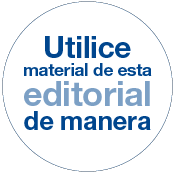Thanks to the repository Tesis Doctorals en Xarxa (TDX), our doctoral thesis «Inclusive cinema: Context, methodology and praxis« can be consulted online in its full form.

The link that should be used for citations is this:
http://hdl.handle.net/10803/689525
The informative synopsis of the thesis is:
Disability has accompanied human beings since the beginning of time, and the way in which people have interacted with it has evolved from rejection to equal treatment. With regard to the access and participation of people with disabilities in the cinema industry, 2023 represents a turning point thanks to the forthcoming Spanish Law on Cinema and Audiovisual Culture, which establishes that audio description and accessible subtitling are mandatory in any feature film that is eligible for public funding. Therefore, this thesis offers a historical context to know the audience with disabilities, a legislative analysis of the Spanish audiovisual industry and a deep study on accessibility tools and sign language. Finally, the model of inclusive cinema is presented, a novel and transversal protocol that incorporates accessible resources from the script of each project.
The scientific synopsis of the thesis is:
This doctoral thesis focuses on sensory accessibility of cinema productions considering film accessibility and its main users —people with disabilities—the subject of research. Therefore, this thesis delves into the circumstances for which millions of people demand improvements in the creation and distribution of accessibility aids; and how these can be related to the audiovisual industry through a new paradigm: inclusive cinema. Analysed as a single qualitative case study, this model —already tested through an action-research methodology— considers that the accessibility of a film can be worked on from its earliest stage, the script, which has a direct impact on the following preproduction, shooting, post-production and distribution phases. It also promotes the participation of people with disabilities during the film creation and distribution process and a balanced relationship between accessibility companies and creative teams.

In the case of the right to quote and reproduce the work, we want to remind you that the thesis «Inclusive cinema: context, methodology and praxis» has all rights reserved. This means that access to the contents of this doctoral thesis and its use must respect the rights of the author: Miguel Ángel Font Bisier. It can be used for consultation or personal study, as well as in research and teaching activities or materials in the terms established in art. 32 of the Consolidated Text of the Intellectual Property Law (RDL 1/1996). For other uses, prior and express authorization from the author is required. In any case, in the use of its contents, the name and surname of the author and the title of the doctoral thesis must be clearly indicated. Its reproduction or other forms of exploitation carried out for profit or its public communication from a place outside the TDX service are not authorized. Nor is the presentation of its content in a window or frame outside TDX (framing) authorized. This reservation of rights affects both the contents of the thesis and its summaries and indexes.









